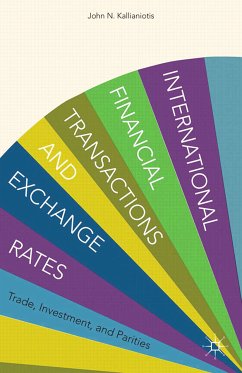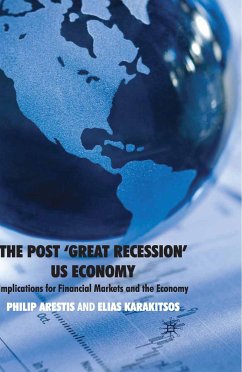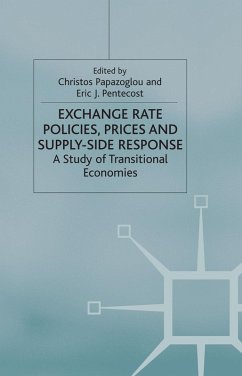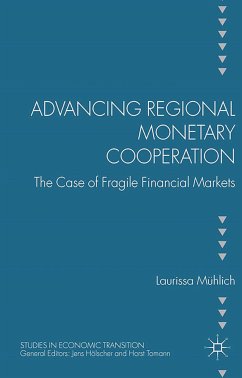
A Financial Crisis Manual (eBook, PDF)
Reflections and the Road Ahead
Redaktion: Thomakos, Dimitrios D.; Nikolopoulos, Konstantinos I.; Monokroussos, Platon
Versandkostenfrei!
Sofort per Download lieferbar
72,95 €
inkl. MwSt.
Weitere Ausgaben:

PAYBACK Punkte
36 °P sammeln!
The recent financial crisis has generated many structural changes within the economy. Many issues are ongoing, and the question of how to recover from the crisis, and how to avoid another one, are continually addressed by scholars and practitioners everywhere. Where there is much discussion within academic and practitioner circles, there is not always adequate interaction between these schools of research. This book provides a thorough overview of the recent financial crisis from the perspective of both industry practitioners and academics specialising in the area. The first part provides prac...
The recent financial crisis has generated many structural changes within the economy. Many issues are ongoing, and the question of how to recover from the crisis, and how to avoid another one, are continually addressed by scholars and practitioners everywhere. Where there is much discussion within academic and practitioner circles, there is not always adequate interaction between these schools of research. This book provides a thorough overview of the recent financial crisis from the perspective of both industry practitioners and academics specialising in the area. The first part provides practitioner insight on the crisis, and explores the causes and effects and of the recession, European public financing, ECB monetary policy and the Euro, the repression of financial markets, and financial stability. Part two focuses on the case of Greece, as a country still heavily impacted by the crisis, which has undergone various unorthodox policies imposed by the IMF, the ECB the EU. The third part provides insight from researchers and academics, covering an array of Economic theories and revealing new economics architectures available for the future. With informed views from both financial industry practitioners and academics, this book discusses current issues and implementable solutions for a faster post-crisis recovery.
Dieser Download kann aus rechtlichen Gründen nur mit Rechnungsadresse in A, B, BG, CY, CZ, D, DK, EW, E, FIN, F, GR, HR, H, IRL, I, LT, L, LR, M, NL, PL, P, R, S, SLO, SK ausgeliefert werden.












